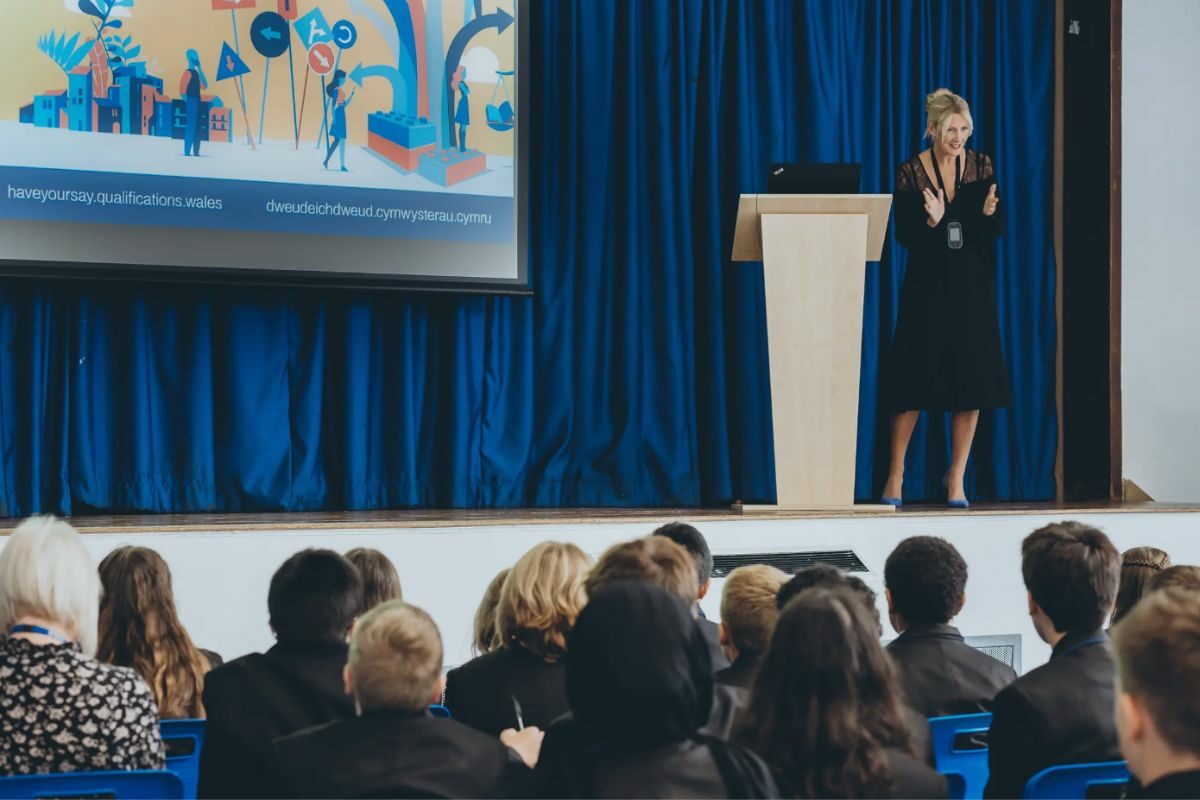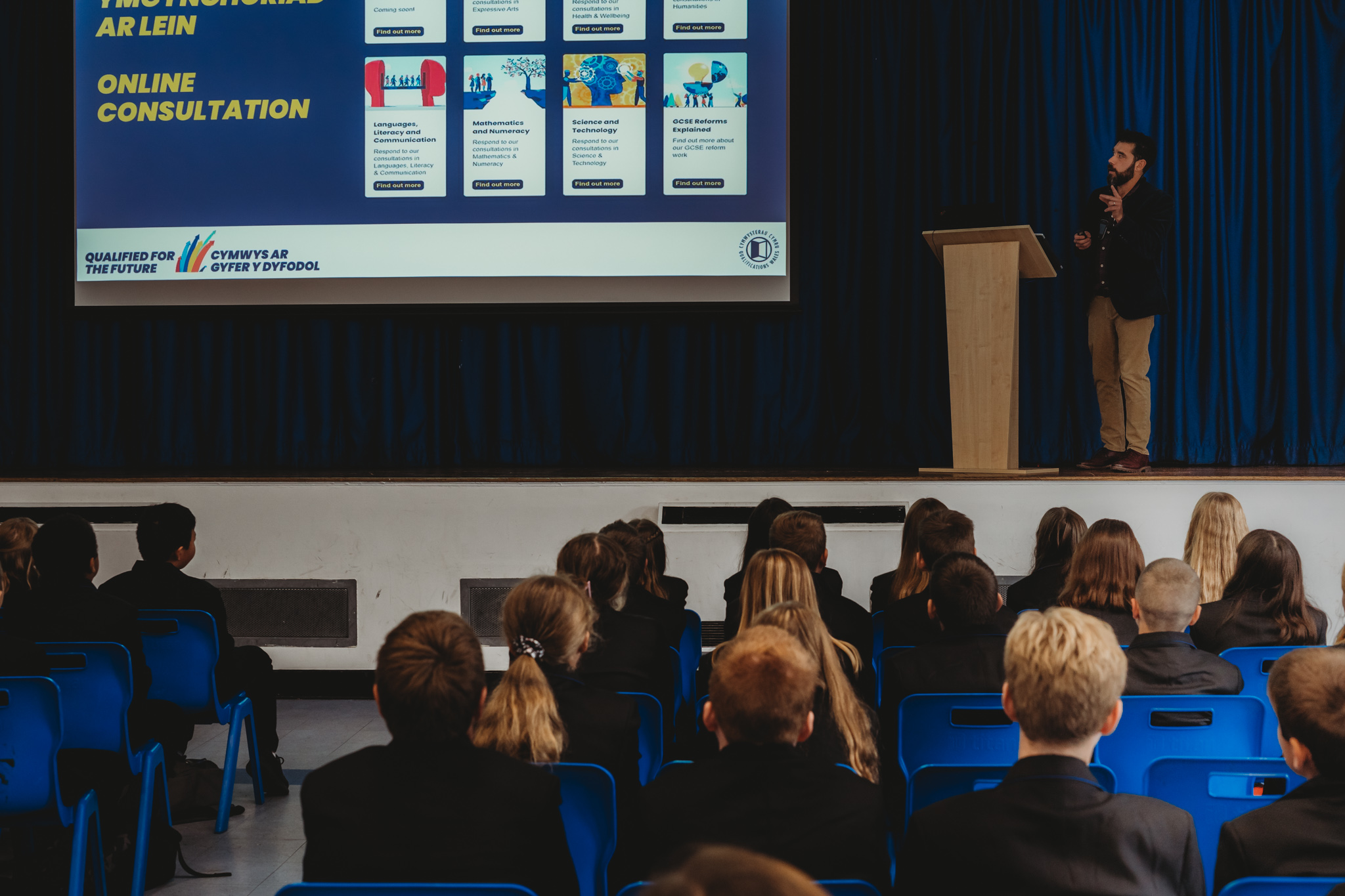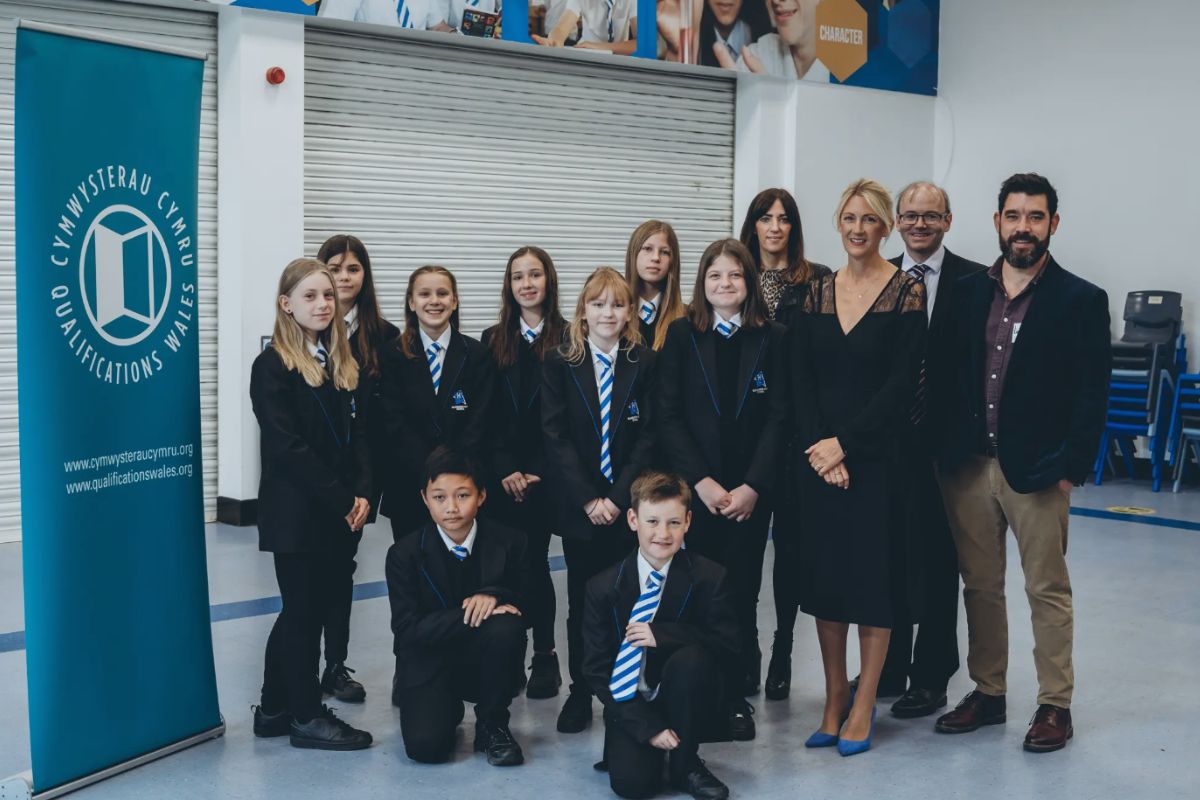Qualifications Wales – New Made-for-Wales GCSEs Consultation

Qualifications Wales has launched a national conversation to give the people of Wales a chance to ‘have their say’ on a major overhaul of GCSEs.
Members of the public, including teachers, parents, employers, and learners, are being encouraged to take part in what is one of the biggest consultations ever in Welsh education.
Qualifications Wales wants people’s opinions on the content and ways of assessing the new qualifications which will be available from 2025.
To take part in the consultation, you will need to register on Qualifications Wales’ new Have Your Say engagement website.
There you can respond to detailed design proposals for each new GCSE – 26 in total – or provide feedback on the changes overall.
The new made-for Wales GCSEs and related qualifications will offer:
- opportunities for learners to demonstrate the skills, knowledge and experiences gained from studying the Curriculum for Wales
- flexible content and assessments to help schools design their own curricula and meet the needs of their learners
- a balanced mix of assessment methods, with less emphasis on exams and more opportunities for learners to be assessed during their course of study
- more effective use of digital assessments
The proposed qualifications include new combined GCSEs in The Sciences (incorporating Biology, Chemistry and Physics), English Language and Literature, Cymraeg (Welsh) Language and Literature, and Mathematics and Numeracy.
Qualifications Wales also wants people across the country to share their views on the content and assessment of brand-new GCSE subjects – including Social Studies, Engineering, Film and Digital Media, and Dance.
These changes to Welsh qualifications are in line with the requirements of the Curriculum for Wales – teaching for which started in schools across Wales last month.
When developing these proposals, Qualifications Wales gathered views from more than 1,400 learners from across the country on what they want from qualifications.
Speaking about the launch of the consultation, Emyr George, Qualifications Wales’ Director of Qualifications Policy and Reform said:
“We want young people and schools to be able to choose from a range of bilingual qualifications, which offer something for everyone. Whatever their interests and wherever they want to go next, there will be a qualification that appeals.
We have worked closely with a wider range of sector experts including teachers and academics to reimagine what future GCSEs should look like in terms of their design, content and assessment. Now we want to hear from as many people as possible about what they think of the proposals.”
The Minister for Education and Welsh Language, Jeremy Miles, said:
“The Curriculum for Wales marks a significant shift in our education system, focussing on giving young people the right range of knowledge, skills and experiences. Qualifications taken by learners at 14-16 need to be reformed to ensure that they are fit for purpose to meet the future needs of our learners, supporting their progression and employment, and so that they align with the ambition and ethos of Curriculum for Wales.
“This consultation is the next step in the journey to reforming these qualifications, and I encourage everyone who is interested to get involved in this conversation, from teachers and parents to young people and employers. Have your say to help shape future qualifications.”


Sarah Parry, Headteacher of Llanishen High School, said:
“It is a privilege to host the launch event for this very important consultation. Our Year 7 students are all now being taught both core and foundation subjects that integrate with the aims of the Curriculum for Wales.
The qualifications that those learners achieve at the end of their formal education have to match the expectations of the Curriculum. We are delighted that our teachers, learners, parents and governors have been involved from the start, to be part of this transformational change.”












Responses